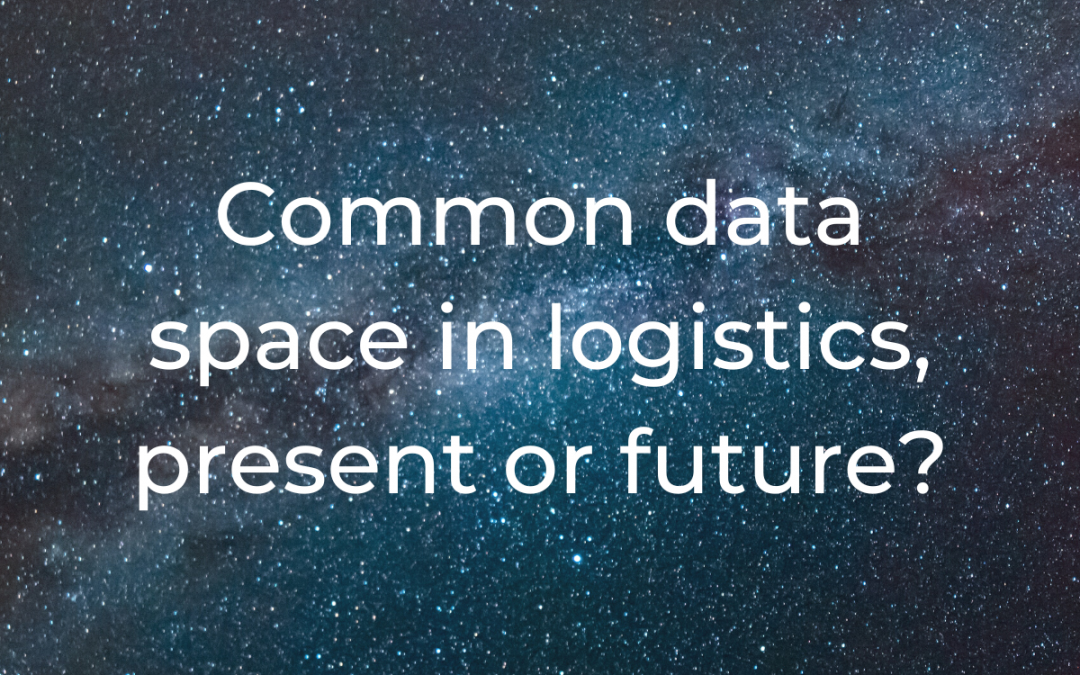- Abierto, interoperable y preservar la soberanía de los datos, principales características que debe reunir un espacio de datos compartido.
- El apoyo económico de los gobiernos, clave para el desarrollo de los espacios de datos compartidos en logística.
Data is an increasingly valuable resource that can be used to improve efficiency, competitiveness and collaboration between all actors in the supply chain. The European Union is aware of the importance of the proper use of data and has created the strategy “A European strategy for data” to promote the use and value of data in Europe through the use of data spaces.
Taking this context into account, and with the aim of presenting initiatives related to data spaces that are being applied in the logistics field, Logistop, a leading association in logistics innovation, has organised the Logistic Observatory “Digitalisation of logistics: The value of data”, with the participation of Herman Wagter, Program Manager, Topsector Logistics/BDI, and Mariano Blaya, Program Manager, International Data Spaces Association; and with the moderation of David Ciprés, Head of R&D line, ITAINNOVA, and introduction of Tomás de la Vega, Managing Director, Logistop.

To start this session, Tomás de la Vega introduced the new activities that Logistop will be carrying out this year, together with the roadmap of the strategic lines of work, emphasising the importance of innovating in the logistics field and continuing to add value to the sector.
As David Ciprés commented, within the framework of Logistop’s strategic line of Digitalisation and automation of processes for efficient and interconnected logistics, we are analysing the technologies that are having the greatest impact on the logistics sector, as well as the need shown by partners in terms of standardisation and data sharing, which is why the need arose to organise this Logistic Observatory in which we have been able to answer questions such as what data spaces are, how they work and what their main characteristics are. In addition, we were able to learn about real examples of the application of data spaces in logistics use cases.
Event-driven Data Space in logistics: use cases
Herman Wagter detailed the basic data infrastructure and the importance of financial support from governments for the development of shared data spaces in logistics. Here, Wagter highlighted three types of business challenges to support: 1) data economy, focused on data marketing and monitoring; 2) high-tech ecosystems, based on complex supply chains; and 3) “physical economy” coordination, where the problem lies in consumer management, contracts, complex real-time coordination and compliance assessment as part of the operation.
It is on this last point that Wagter focused to explain a number of real use cases in which shared data space systems are being applied. He highlighted the success case carried out in the port of Rotterdam for oil tankers. He also emphasised use cases applied to last mile delivery and the promotion of eFTI – electronic Freight Transport Information – regulations.
“To promote the development of shared data spaces in logistics, financial support from governments is needed, mainly in three types of business challenges: 1) data economy; 2) high-tech ecosystems; and 3) physical economy coordination”
Herman Wagter, Program Manager, Topsector Logistics/BDI
Current panorama of data spaces
For his part, Mariano Blaya highlighted how one of the main problems of shared data spaces is how to carry out efficient sharing.
To this end, Blaya stressed four key aspects: 1) having a federated data architecture; 2) interoperability at various levels, not only taking into account technological aspects, but also functional, semantic, legal, etc. aspects; 3) data sovereignty and traceability throughout the process; and 4) generating an environment of trust among all participants.
“Different data must be integrated into a common ecosystem for data-driven business models to be possible. Such an ecosystem must be open, interoperable and must also preserve data sovereignty”
Mariano Blaya, Program manager, International Data Spaces Association
About Logistop
At Logistop we transform the supply chain through innovation, helping industry and companies to become more efficient and sustainable.
We are a multidisciplinary and inter-territorial working space in the logistics innovation arena formed by all the actors involved in the supply chain, as well as universities, technology centres, associations and specialised consultancy firms.
One of Logistop’s main objectives is:
- To promote the need for innovation among companies involved in the logistics sector;
- To promote innovation projects;
- To communicate the real needs of the sector at an institutional level.

